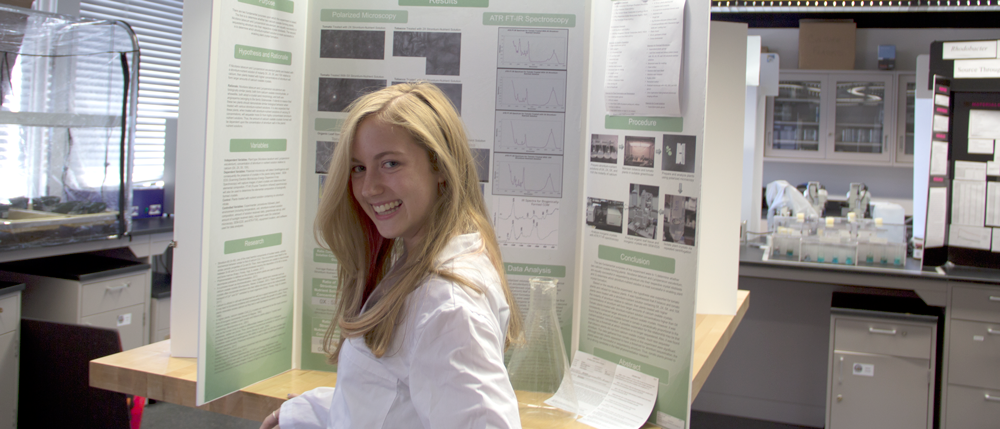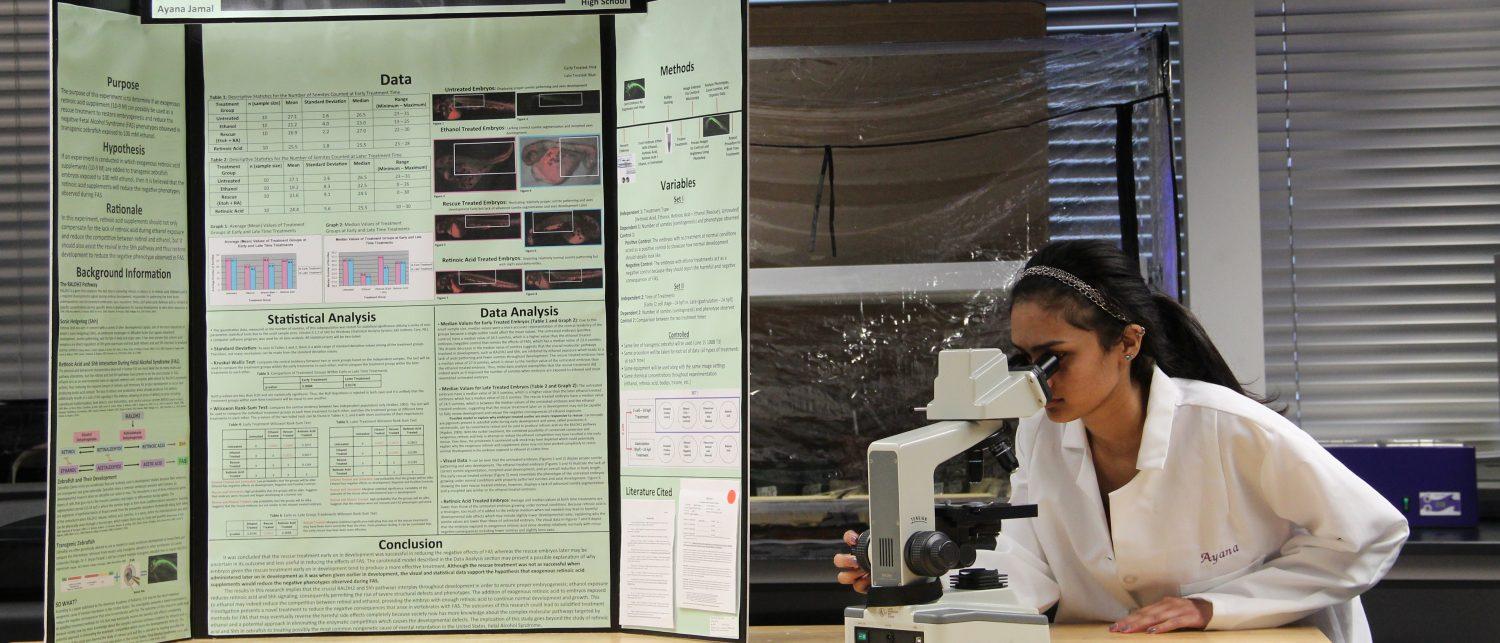On March 17, junior Haley Sproull’s year-long efforts on her project, Biomineralizationof Calcium-Based Plant Crystals as a model for Strontium Phytoremediaton, were finally put to the test at this year’s Illinois Junior Academy of Science Fair. Not only did she come out of the event with a Gold Award as a state qualifier and the Women in Chemistry award, but she was also chosen to take part in the ultra-competitive Intel International Science and Engineering Fair (ISEF).
This annual competition will take place May 13-18 in Pittsburgh, Penn. Each year 1,500 international finalists are selected to participate in this fair, the top prize being a $100,000 scholarship. The projects that qualify for ISEF are the cream of the crop, the competing categories ranging from material science to botany.
Sproull, who was the last finalist called at the regional fair, was shocked when she heard her name. “I was incredibly overwhelmed since I hadn’t expected it at all, but at the same time, it was awesome,” Sproull said. This will be her first time at ISEF.
The title of her project provides a clue to the complexity of her work. Sproull says that, after reading about the research done in an engineering lab at Northwestern University, she contacted its lead researcher and began her own experimentation and research.
With the prestigious university’s high-tech equipment at her fingertips, Sproull observed tomato and tobacco plants’ reaction to Strontium. Strontium is a radio-active isotope that causes cancer and other sicknesses through its emission of radiation. It is not only bad for humans but is also detrimental for the environment. Since both tomato and tobacco plants form calcium crystals that have similar properties to Strontium, Sproull hypothesized that if these plants were to absorb and incorporate the Strontium into their crystals, then this harmful substance would seize to interfere with the world and people. Her research was successful, since Strontium was found incorporated within her tomato plants’ crystals, which could potentially help combat nuclear waste.
Jacki Naughton, Sproull’s SIRS teacher and sponsor, believes Sproull’s success has come from her “way of finding unique projects.” Naughton says that, “[Sproull] always seeks novel and ‘cutting-edge’ research.”
This summer, Sproull will continue her internship at the engineering lab at Northwestern, and plans to collaborate with the Botanic Gardens for her next year’s project.





